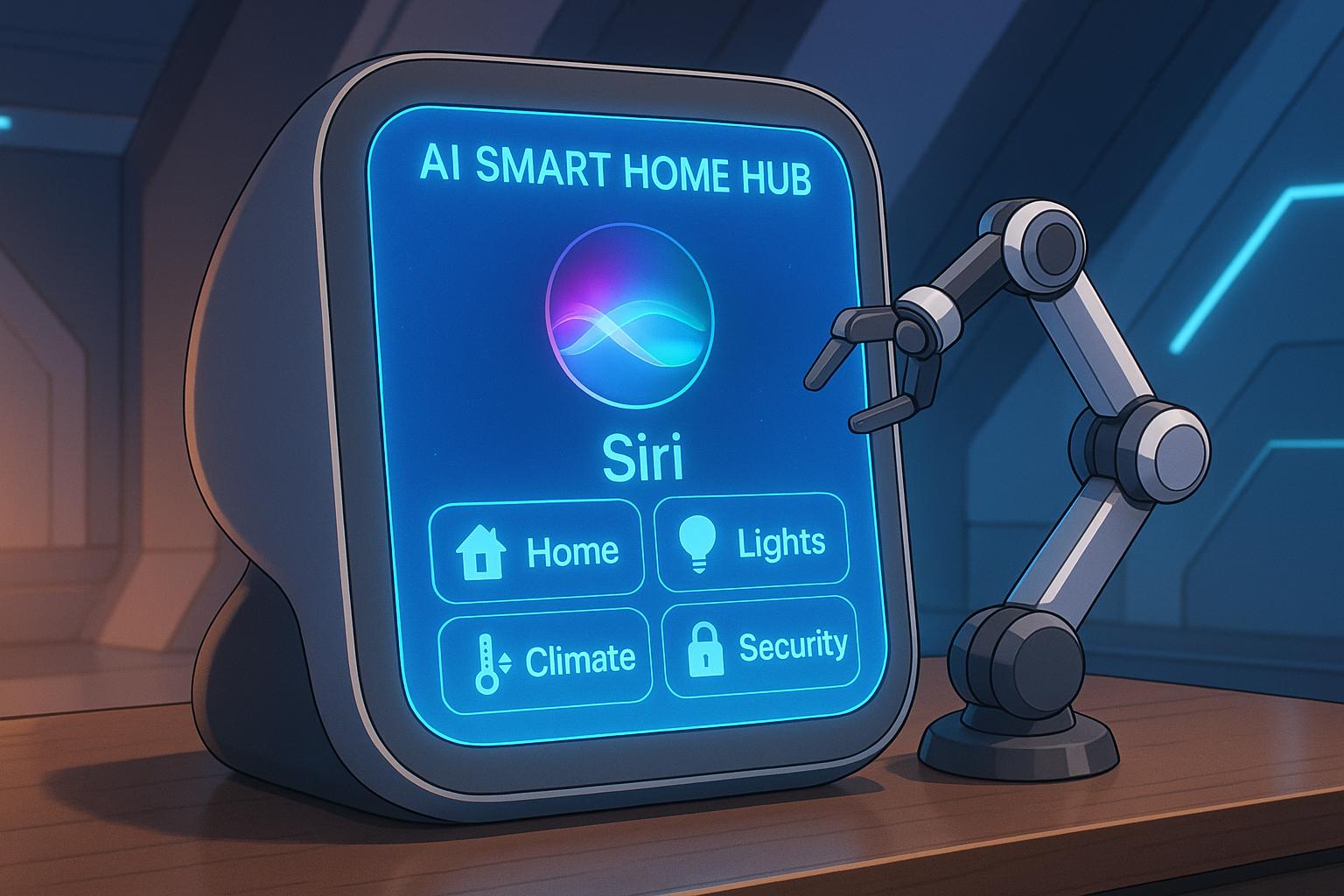Apple's ambition to enhance its ecosystem with advanced artificial intelligence features is set against the backdrop of significant delays affecting its flagship voice assistant, Siri. The company has reportedly stalled the release of two innovative home hub devices—one a wall-mounted iPad-like screen for managing smart home technology (code-named J490) and the other an interactive tabletop device with a robotic arm (J595). Both products will only launch following a major overhaul of Siri, which is expected to introduce on-screen awareness critical for their functionality.
Recent developments have placed the responsibility for the Siri upgrade in the hands of Mike Rockwell, who leads the Apple Vision Pro team. The revamped Siri is crucial for enhancing user interaction, making it more contextual and responsive through the integration of Apple’s new AI technology, 'Apple Intelligence.' Currently, the wall-mounted device is anticipated for release by the end of 2025 or early 2026, while the more complex tabletop device is projected to arrive later, likely lacking some of its intended features upon initial release.
Apple's decision to delay these products highlights the importance of a successful Siri upgrade, which had originally been planned for release in spring 2025. Internal challenges have arisen, reportedly due, in part, to budget constraints imposed last year. For instance, a crucial request for an expanded GPU budget to support AI initiatives was curtailed, affecting Apple’s ability to keep pace with competitors in the rapidly evolving AI landscape. However, with the iPhone 16 launch in autumn 2024 bringing additional AI enhancements, analysts believe there is potential for a substantial upgrade cycle reminiscent of the iPhone 12's successful release in 2020.
Despite concerns regarding the effectiveness of these AI initiatives in attracting new customers, the expected advances could resonate strongly with existing Apple users keen on upgrading to devices equipped with 'Apple Intelligence.' This initiative not only aims to enhance Siri by incorporating features inspired by OpenAI’s ChatGPT but also focuses on further personalising user experiences. CEO Tim Cook emphasised the need for these enhancements to be impactful and privacy-conscious, a sentiment echoed by Apple’s strategy to run AI models locally rather than in the cloud.
Moreover, the response from the market has been mixed. Following the announcements related to AI capabilities, Apple shares experienced a notable dip, suggesting that investor confidence remains fragile. The higher expectations placed on these advancements underscore the importance of a successful rollout, especially in light of Apple's ongoing reliance on iPhone sales.
As Apple navigates these challenges, the focus remains firmly on the integration and enhancement of AI within its product ecosystem. This strategy not only addresses immediate competitive pressures from rivals like Microsoft and Google but also sets the stage for future innovations that could play a vital role in redefining how users interact with their devices. Ultimately, the success of Siri's revamp and the subsequent launch of the AI-powered home devices will be pivotal in determining Apple's trajectory in the evolving tech industry.
Reference Map:
- Paragraph 1 – [1], [4]
- Paragraph 2 – [1], [2], [4]
- Paragraph 3 – [3], [4], [6]
- Paragraph 4 – [2], [5], [6]
- Paragraph 5 – [5], [6]
- Paragraph 6 – [1], [3], [7]
Source: Noah Wire Services
